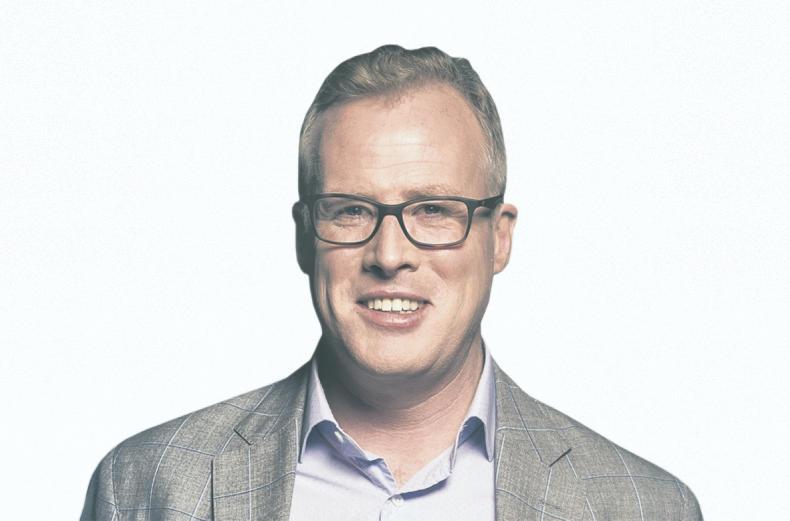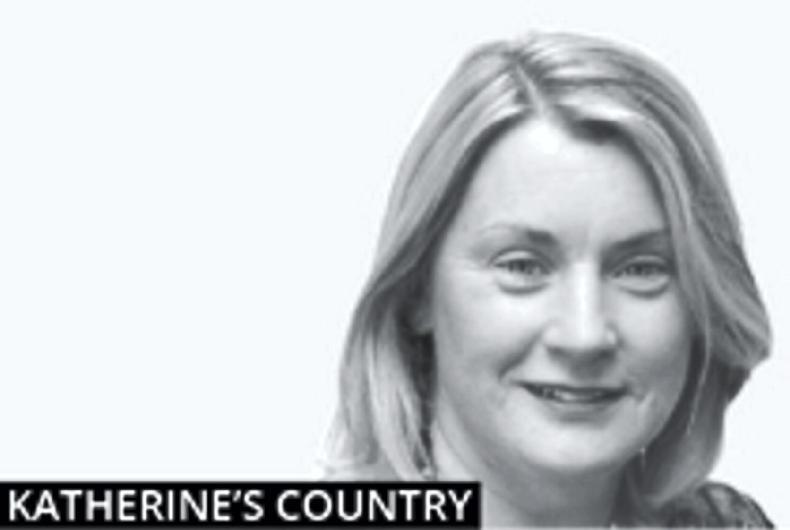It must be quite frustrating for farmers listening to commentators with little or no farming background telling them holistically that if they can’t make a living, then they should pack up and do something else. Such commentary on radio and TV smacks of so little understanding of Irish farming in the round.
Farming is fundamentally different to being a shopkeeper, a journalist or an academic.
Farming is a way of life
It is often the latter two that are quick to finger wag at farmers who attempt to highlight the fact that we as consumers treat them like muck in our rush to buy cheaper and cheaper.
Farming is a way of life. And almost every farmer in the country has inherited the farm from their parents and grandparents before them. And no doubt they too went through tough times, took criticism, put up with the put downs and worked hard through thick and thin to make a living from tending to the land. So why should the farming generation of today just give up and hand over to a bigger farmer?
Farming faces many challenges. There is the perfect storm of Brexit, Mercorsur, weather, climate change and changing diets which is creating an air of uncertainty about the future particularly in beef.
I noticed during last month’s tractor siege of St Stephen’s Green the consistency in the accents
And in the debate about finding solutions, everybody has an opinion, including many who blithely suggest that any struggling farmer should just give up the ghost and go do something else. And do what exactly?
I noticed during last month’s tractor siege of St Stephen’s Green the consistency in the accents. The majority of the fed-up protestors sounded like they were from that horseshoe which loops from Roscommon, through Leitrim and Longford, Cavan and Westmeath back around into Offaly. What they had in common was the fact that they were all beef farmers with small holdings on the sort of soil and land that really isn’t suitable for other enterprises.
Who knows, maybe there is merit in growing organic vegetables instead of rearing beef, but on 1,000, 20,000, 50,000 beef farms?
Do you not think that if a farmer could change to another profit-making enterprise, they wouldn’t do so first thing tomorrow? So it is easy to lecture, “Oh stop whinging, you’re polluting the planet anyway, go grow trees or organic vegetables instead.” The “organic vegetables” suggestion did actually appear online somewhere as one persons solution to the woes of the struggling beef farmers.
Food producers who aren’t making money know that more than any of us
Who knows, maybe there is merit in growing organic vegetables instead of rearing beef, but on 1,000, 20,000, 50,000 beef farms? This is the point. In this age of quick and fast solutions, the farm critics are throwing around quick and fast blanket solutions to beef and dairy farming by engaging their mouth before their brain.
Food producers who aren’t making money know that more than any of us. Isn’t it them who are telling us the system is broken? But it’s obviously not as easy a fix as the chattering classes think.
Yes, reducing the numbers on a suckler farm by say 20% and growing 20% of the farmland in trees while retaining the same farm payment sounds sensible. But it is just foolish to think it’s a catch-all solution which is possible overnight.
Instead of a roadmap which is just focused on production and export growth, what is needed is an academic roadmap to the future of the Irish farming way of life and tending to the land from the perspective of it being the lifeblood of rural communities and the natural landscape. Farming is about so much more than an occupation.









SHARING OPTIONS